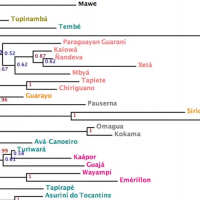Algorithms—the chains of “if-then” logic by which computers make calculations—are increasingly finding their way into the broader culture, whether through politics, media, science, or everyday life. To explore the ramifications of this shift, UC Berkeley Social Science Matrix is sponsoring a seminar entitled “Algorithms as Computation and Culture,” which will bring together computer scientists, social scientists, and humanities scholars.
“There is a growing interest coming from other fields in the 'politics of algorithms,’ recognizing that they are consequential to society as a whole, and raise issues of discrimination and inequality, information access, and the shaping of public discourse,” explains Jenna Burrell, Associate Professor in UC Berkeley’s School of Information. “There are algorithms that do automated credit application analysis, decision-support systems for medical diagnosis, and others—like Google Search and Twitter Trends—that manage information search and trend identification, determining what is brought to our attention and what isn't.”
The Matrix seminar will convene faculty and students from Berkeley’s School of Information, as well as from anthropology, history, art practice, neuroscience, law, rhetoric, sociology, and other fields. Sessions will be alternatively led by social scientists, humanists, and computer scientists; unlike in traditional seminars that rely on assigned readings, participants will engage directly with algorithms to better understand how they operate.
“The purpose is to explore ways of talking and thinking about 'algorithms' that are not defined solely by one disciplinary approach, though we also want to study them very concretely, looking at particular examples,” explains Burrell, who is leading the seminar. “The word 'algorithm' is starting to bubble up in public debate and in the media as well. We want to explore algorithms from many different angles.” To learn more, see this article.





